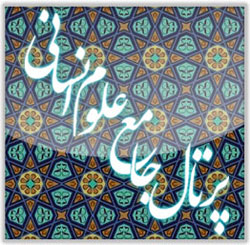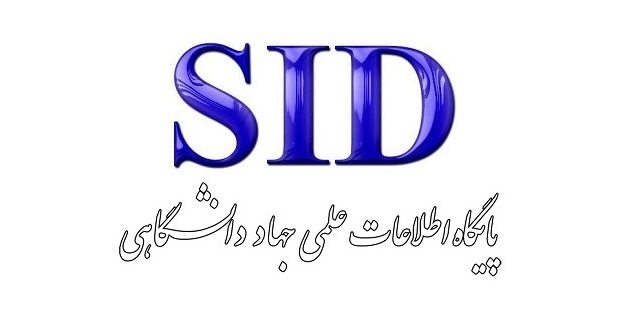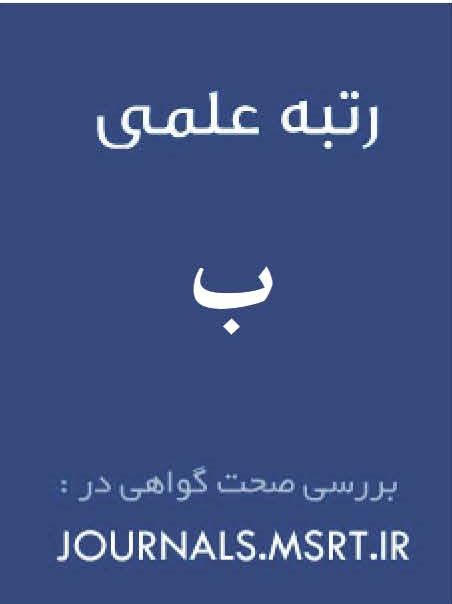بازنمایی اندیشه آزادیخواهی در گفتمان ملی گرایی با نگاهی به اشعار دو شاعر ملی گرا مهدی اخوان ثالث و حمید مصدق
کلمات کلیدی:
آزادی, وطن, استبداد, اخوان ثالث, مصدقچکیده
عشق به وطن، وطن دوستی و ملی گرایی حربهای است در دست بسیاری از متفکران و اندیشمندان در جهت ایجاد احساسات و تلنگری عمیق در بیداری مردم به جهت مبارزه با استبداد، استکبار و استعمتار بوده و میباشد. در این میان، گفتمان ملی گریی یکی از نحلههای فکری مؤثر در امر سیاسی و تاریخ سیاسی معاصر ایران است. از جانبی این مکتب به اندیشه آزادیخواهی که ایرانیان از مشروطه به بعد سعی در دستیابی به آن بودند معانی و جهتگیری تازهای چون رهایی از یوغ استعمار و استکبار جهانی، مبارزه با فقر و... میداد. بررسی تاثیرات گفتمان ملی گرایی بر اندیشه آزادیخواهی ایران که خود ایدئولوژی برای دستیابی به آزادی به ایرانیان میداد مهم مینماید. از آنجا که بررسی کلیه جوانب مشکل مینماید لذا در این مقاله با بررسی باز نمایی اندیشه آزادیخواهی در ادبیات دو شاعر ملی گرا میتوان تاثیرات گفتمان ملی گرایانه را نیز احصا نمود. تاثیر ملی گرا در ادبیات سیاسی ایران به جهت تاثیر بر ادیب، و خواننده روشن است. این مقاله برآن است که با بررسی آثار دو شاعر ملی گرا یعنی اخوان ثالث و حمید مصدق ملی گرایی را در اشعار این دو ادیب با روش تحلیل گفتمان لاکلا و موفه بررسی نماید. وطن و ایران دال مرکزی و استبداد ستیزی، آزادیخواهی وقتهها هستند ضمنا توجه به اسطورهها در شعر هر دوشاعر مشاهده گردیده است. ایرانی به عنوان سوژه سیاسی است.
دانلودها
مراجع
1. Dorosti A. Political poetry during the Second Pahlavi era: Center for Islamic Revolution Documents; 2002.
2. Attarzadeh M. Reflection of political changes in society in the epic poetry of Akhavan Sales: A case study of the poem “Winter”. Khorasan Cultural and Social Studies. 2018;12(4).
3. Parsa SA, Moradi F. An analysis of social symbolism in the 1950s poetry of Mehdi Akhavan Sales with emphasis on the 1953 coup d'état. She’r Pazhuhi. 2014;19:55-70.
4. Pouryazdanpanah Kermani A, Karami R. Analysis of resistance themes in Akhavan Sales' poetry based on Pierre Bourdieu’s theory of practice. Sacred Defense Literature. 2018;3:47-64.
5. Amouri N, Aghighi M. A comparative analysis of some themes of resistance literature in the poetry of Mehdi Akhavan Sales and Amal Dunqul. Adabnameh-ye Tatbighi. 2014;1(1).
6. Mohammadi A, Ghasemi Dourabadi T. A study and analysis of the titles and poems of Mehdi Akhavan Sales. Persian Literature Journal. 2016;17:77-92.
7. Asadollahi K, Yahyaei M. Analysis of the travel motif in the poems of Akhavan Sales with a case study of the poem “Chavoushi”. Studies in Lyrical Literature. 2017;7(22B):21-32.
8. Vaqefzadeh S, Najafi HS. Balance of patriotic and awakening themes in the poetry of Farrokhi Yazdi and Akhavan Sales. Persian Language and Literature, Islamic Azad University of Sanandaj. 2017(28–29):345-64.
9. Hasanzadeh MAA, Hosseini Kalbadi SH. Myth in the poetry of Hamid Mosadeq. Contemporary Persian Literature. 2012;2(1):49-64.
10. Fakhri Tabatabaei N. The reflection of sociological views in the poetry of Mohammad Reza Shafiei Kadkani and Hamid Mosadeq. Mysticism and Philosophy Literature Studies. 2017;2(4):191-203.
11. Gholami F, Mehraban Qezelhesar J. The influence of political environment on the poetry of Hamid Mosadeq. Ormazd Research Journal. 2020(52):248-61.
12. Lakzian H, Shabani A. An analysis of the didactic teaching of anti-oppression in Hamid Mosadeq’s “Kavian Banner” poem based on John Searle’s speech act theory. Educational Literature Research Journal. 2021(50):1-24.
13. Moghaddami MT. The theory of discourse analysis by Laclau and Mouffe and its critique. Journal of Cultural-Social Knowledge. 2011;2(2):91-124.
14. Ali Abbas Abad Y. Freedom and its associated concepts in modern Persian poetry. Payk-e Noor. 2008;8(2).
15. Bakhtiari MR, editor The role of freedom and liberalism in Persian poetry. The Third Online Conference on Modern Research in Science and Technology; 2015.
16. Maleki A, Abbaspour A. A sociological study of youth attitudes towards national identity and its components: A case study of 16–29-year-olds in Rudsar County, Gilan Province. Police Knowledge Quarterly. 2009;10(2).
17. Sadaraii R, Sadeqi M. Discourse analysis of nationalism in the poetry collection of Ahmad Shamlou based on Laclau and Mouffe’s theory. Textual Literary Research. 2018;22(75).
18. Erfanian L. Discourse analysis of protest poetry in the works of Mehdi Akhavan Sales based on the discourse theory of Laclau and Mouffe. Literary Criticism Studies. 2021;16(50):223-47.
19. Moradhasseli J. The nature of leftist revolutionary discourse in the constitutional era of Iran (post-second parliament). Iranian History. 2019;12(1).
دانلود
چاپ شده
ارسال
بازنگری
پذیرش
شماره
نوع مقاله
مجوز
حق نشر 2025 رضا دویده, احمد علی حسابی, یوسف امینی, منوچهر کرد زنگنه (نویسنده)

این پروژه تحت مجوز بین المللی Creative Commons Attribution-NonCommercial 4.0 می باشد.








